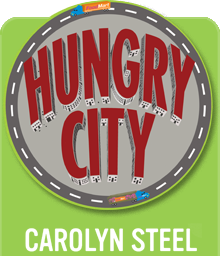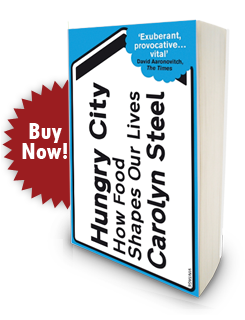Cuba – truth or myth?
Last night I went to the launch of Julia Wright’s new book, Sustainable Agriculture and Food Security in an Era of Oil Scarcity: Lessons from Cuba. Since the book costs an eye-watering £60.00, I thought I would share with you some of her key findings.
Wright has spent the last 15 years studying the Cuban response to the collapse of the Soviet Union, from which it had previously imported 50 percent of its food. The agricultural revolution that ensued, particularly in organic urban agriculture, has become the stuff of legend – so much so that the WWF described Cuba as the only example of sustainable development in the world.
Wright does not deny that Cuba’s urban farms, or organopónicos, have been a success. However she points out that they only supply 5 percent of the nation’s food, so can hardly be held up as an example of urban farming feeding a nation. More interestingly still, she has found that 75 percent of Cuban farmers use agrochemicals, and 83 percent would apply more if they could. Indeed, Cuban imports of these are increasing steadily, and the nation now imports 80 percent of its food.
In fact it turns out that the Cuban agricultural miracle, if not exactly over, is in the process of turning back into something far more familiar. Despite a wealth of evidence that, according to Wright, shows that organically farmed land was in fact more productive than industrially farmed, the nation is reverting to the latter – with all the associated problems of oil dependency and soil degradation (25 percent of Cuban soil is already degraded).
Despite their extraordinary achievements in response to an unprecedented food crisis, it seems that most Cubans yearn for a food system more akin to that of the West. The conversion to organic self-sufficiency never occurred in their heads.











April 25th, 2009 at 8:04 pm
I would have liked to have gone to the launch, £60 is a crazy price, I wonder if I can convince my library to stock the book?
Sad to hear this about Cuba, the film Power of Community is so very inspiring.
May 4th, 2009 at 9:51 pm
Hello - I’m Hannah, one of the people who came to speak to you after the talk.
I’ve been thinking about this since - in many ways it reminds me of the ‘Dig for Victory’ movement. The popular myth is of everybody pitching in and growing their own for the common good, but in another sense the public were being encouraged to grow vegetables so that the commercial farmers could concentrate on producing commodities very intensively (in fact a lot of this was the precursor of post-war industrial agriculture). It seems that there’s almost the same division in Cuba, and a very simliar public perception of wholesome, small-scale growing while the reality was quite different.
July 28th, 2009 at 2:36 pm
The explanation for this re-reconversion to industrial farming is simple: the degradation of soil and water and the cost of importing energy and pesticides is the price for whats “easy” and “cheap”. As all of the developing world they long to free themselves from a rural, simple life and into a complex, consuming one which can only be supported by industrial farming (which employs only 5% as farmers)and cheap energy.
Tragically, the really cheap always comes with a delayed high cost which is not evident at the beggining…
August 10th, 2009 at 2:38 pm
Actually, I think Hannah may be onto something. At the moment global food supply is dominated by cheap refined carbohydrates and appalling meat. People are not fools; they buy the cheapest calories they can. And that does not include good nutrition. So, why not integrate intensive (but preferably less harmful) intensive production of storable, shippable commodities with local production of the extra so vital for a diverse diet that is tasty and nutritious?
August 12th, 2009 at 7:12 pm
Hi, thanks for that mention, Carolyn. Cuba still provides inspiration and actually we learn more from challenges and mistakes than from a simple success story. Sorry about the price of the book on Cuba. Not my decision! But I can get discount copies if anyone’s interested.
August 13th, 2009 at 9:53 am
Hi Julia, you’re welcome – thanks for the talk! It was very illuminating. I agree, too, that one learns more from real challenges and mistakes. In fact I wish more of the debate was focused in that direction.